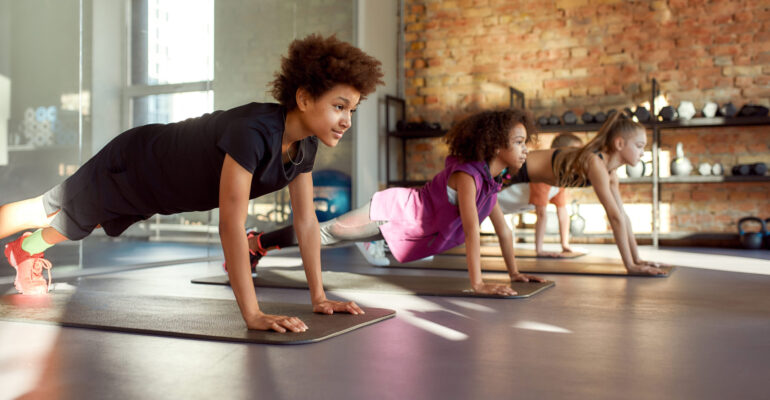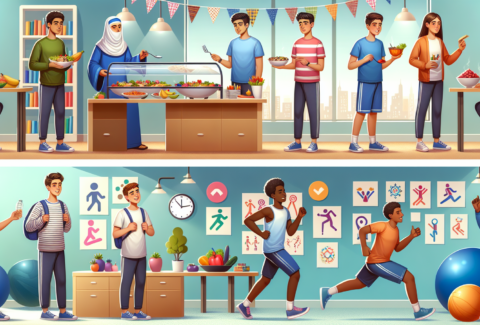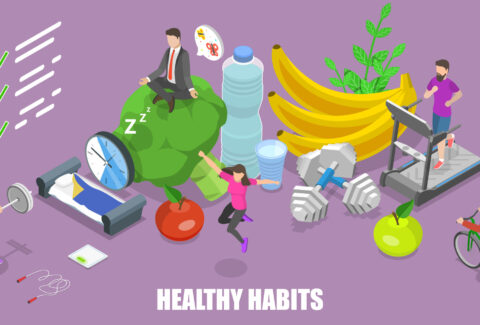Why Exercise is the Ultimate Power-Up for Teens
In a world filled with screens, school stress, and endless distractions, exercise might seem like a chore. But what if we told you that moving your body is one of the best ways to boost your energy, focus, and overall well-being? Exercise isn’t just about building muscles or losing weight—it’s about unlocking your full potential.
Did you know that regular physical activity improves mood, strengthens memory, and even enhances sleep quality? Many of these benefits go hand in hand with the habits discussed in 5 Small Changes to Build Healthy Habits That Last a Lifetime. Let’s explore why exercise is the ultimate power-up for teens and how you can make it a fun, everyday habit.
The Science Behind Exercise and Energy Levels
Have you ever noticed how a quick walk or workout can leave you feeling more awake and alert? That’s because exercise increases circulation, delivering more oxygen and nutrients to your muscles and brain.
How Exercise Powers Your Body:
- Boosts mitochondria production – More mitochondria mean more energy for daily activities.
- Enhances cardiovascular health – A strong heart pumps blood more efficiently, reducing fatigue.
- Regulates hormones – Exercise helps control cortisol (the stress hormone) and boosts endorphins (feel-good chemicals).
Exercise isn’t just movement—it’s a natural energy booster that keeps you going strong.
If you often feel sluggish during the day, pairing exercise with better sleep habits from The Sleep Cheat Code: How Better Rest Boosts Your Energy, Mood, and Health can help you wake up refreshed and full of energy.
Exercise and Mental Health: A Natural Mood Booster
Physical activity isn’t just good for your body—it’s a game-changer for your mind. Studies show that exercise reduces symptoms of anxiety and depression while improving focus and cognitive function.
The Mental Benefits of Moving More:
- Releases endorphins – Your body’s natural mood lifters.
- Improves focus and memory – Exercise enhances brain function, making studying easier.
- Reduces stress and anxiety – A quick workout can help reset your mood after a tough day.
Good mental health starts with movement—exercise is the ultimate stress reliever!
If stress is making it hard to focus, try combining physical activity with relaxation techniques from Why Stress Sucks for Your Health and How to Manage It for a holistic approach to mental well-being.
Strength, Flexibility, and Endurance: The Physical Perks of Exercise
Exercise isn’t just about looking fit—it’s about feeling strong, agile, and capable. A balanced workout routine builds endurance, improves flexibility, and strengthens muscles, all of which help you perform better in everyday life.
Types of Exercise and Their Benefits:
- Cardio (running, cycling, dancing) – Boosts heart health and stamina.
- Strength training (bodyweight exercises, resistance bands, weights) – Builds muscle and bone density.
- Flexibility training (yoga, stretching) – Enhances mobility and reduces injury risk.
A strong body supports an active, confident life—find the movement that makes you feel your best!
Pairing nutritious meals with exercise fuels performance. Need ideas? Check out From Fast Food to Fresh: Easy Swaps to Eat Healthier Without Giving Up Flavor for easy, delicious ways to nourish your body.
How to Make Exercise Fun and Sustainable
One of the biggest misconceptions about fitness is that it has to be boring or difficult. The truth is, exercise should be enjoyable! Finding activities that excite you makes it easier to stay consistent.
Fun Ways to Stay Active:
- Try a new sport – Basketball, swimming, martial arts—find something you love!
- Use gamified fitness apps – Apps like Zombies, Run! or Just Dance make movement fun.
- Join a fitness challenge with friends – Turn exercise into a social experience.
- Make small movement goals – Even walking or stretching counts!
Exercise should never feel like a punishment—make it an adventure!
If you need motivation to stay on track, building small daily habits from 5 Small Changes to Build Healthy Habits That Last a Lifetime can help you make fitness a lifelong commitment.
The Role of Hydration and Recovery
Exercise is powerful, but recovery is just as important. Without proper hydration and rest, your body can’t perform at its best.
Recovery Essentials:
- Drink plenty of water – Hydration supports muscle function and reduces fatigue.
- Prioritize rest days – Your body needs time to rebuild and strengthen.
- Get quality sleep – Sleep is when your body repairs itself.
Train hard, recover smarter—balance is key to long-term fitness!
If hydration is a challenge, check out Why Staying Hydrated is a Game-Changer for Your Health to learn how water fuels performance and recovery.
The Bottom Line: Move More, Live Better
Exercise isn’t just about hitting the gym—it’s about moving in ways that make you feel strong, confident, and energized. Whether it’s dancing in your room, hiking with friends, or trying a new sport, movement is the key to unlocking a healthier, happier you.
As explored in 5 Small Changes to Build Healthy Habits That Last a Lifetime, small daily habits create big results. So lace up your sneakers, start where you are, and embrace the power of movement.
What’s your favorite way to stay active? Share your fitness journey with us on social media, and let’s inspire each other to move more and live better!







